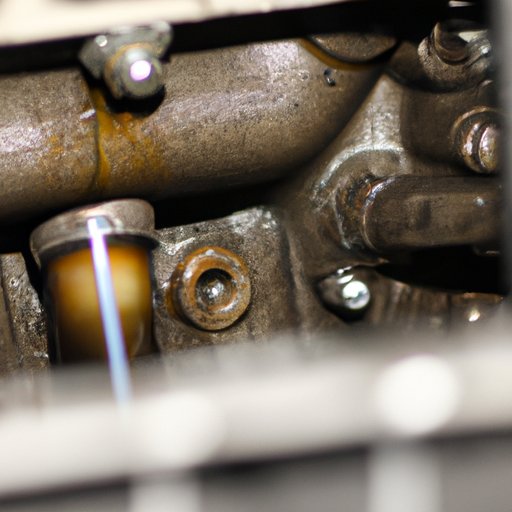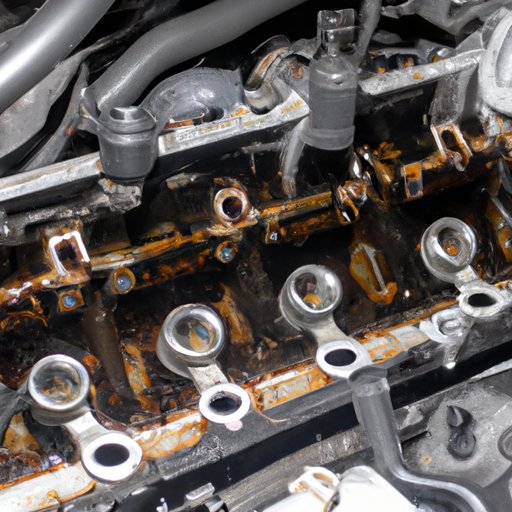What Happens When You Put Diesel in a Gas Engine?
Misfueling is a common problem that can occur when people fill their vehicle with the wrong type of fuel. While it might seem like a minor mistake, putting diesel in a gas engine can have significant consequences for your vehicle and your wallet. In this article, we’ll explore why diesel in a gas engine is a bad idea, the effects it can have on your vehicle, and how to prevent or deal with this problem.
The Effects of Misfueling: Why Diesel is Not Suitable for Gas Engines
Diesel and gasoline engines are designed differently, and using the wrong type of fuel can cause significant damage to your vehicle. Diesel, for example, is thicker and denser than gasoline, and it has a different chemical composition. When you put diesel in a gas engine, it can clog the fuel system, damage the engine block and exhaust system, and reduce engine performance. Over time, diesel can corrode and wear out various parts of the engine, which can lead to costly repairs.
A Costly Mistake: What Happens When You Put Diesel in a Gasoline Engine
In addition to damaging your vehicle, putting diesel in your gas tank can also be expensive. Fixing a misfueling problem can cost thousands of dollars, depending on the extent of the damage. You might need to repair or replace your engine, pay for towing fees, rental car charges, and other expenses. Unfortunately, insurance may not cover these costs, so you could be stuck paying out of pocket for your mistake.

The Science of Combustion: Understanding the Negative Impacts of Diesel in a Gas Engine
To understand why diesel is not suitable for gas engines, it’s essential to know how the combustion process works. Gasoline engines rely on a spark to ignite the fuel, while diesel engines use the heat of compression to ignite the fuel. When you put diesel in a gas tank, it can disrupt the combustion process and cause the engine to malfunction. Diesel does not burn as cleanly as gasoline, which can lead to increased emissions and harm the environment. If you’re interested in the technical details behind why diesel in a gas engine is a problem, there’s plenty of information out there for you to explore.

Roadside Woes: How Putting Diesel in Your Gas Engine Can Leave You Stranded
The worst-case scenario for misfueling is that it can cause a breakdown or stranding on the road. If your engine stalls or your fuel system is damaged, you could find yourself unable to start your vehicle. This can be especially problematic if you’re far from home or in an unfamiliar area. Unfortunately, you can’t always predict when misfueling will occur, but there are steps you can take to minimize your risk.
Avoiding Disaster: What You Need to Know About Misfueling and Its Consequences
The best way to avoid misfueling is to take preventative measures. Check the fuel pump nozzle before fueling up, and make sure you’re using the correct fuel for your vehicle. If you’re unsure, ask a gas station attendant or consult your owner’s manual. Using a fuel treatment designed to protect your fuel system can also help prevent problems. Remember, prevention is key, and taking steps to avoid misfueling can save you time, money, and frustration in the long run.
The Do’s and Don’ts of Fueling Up: Preventing Engine Damage With Proper Fuel Selection
To minimize your risk of misfueling, follow these do’s and don’ts when fueling up:
- Do check the fuel pump nozzle before fueling up.
- Do use the correct fuel for your vehicle.
- Do consult your owner’s manual or ask a gas station attendant for help if you’re unsure.
- Don’t rush when fueling up, take your time to ensure you’re doing it correctly.
- Don’t put anything other than fuel into your gas tank.
By following these simple steps, you can significantly reduce your risk of misfueling and protect your engine from damage.

From Maintenance to Repair: The Aftermath of Putting Diesel in a Gasoline Engine
If you’ve made the mistake of putting diesel in your gas tank, there are steps you can take to minimize the damage. First, stop the engine and do not restart it. Seek professional help as soon as possible, as the longer you wait, the more damage could be done. Depending on the extent of the damage, you might need to have your engine repaired or replaced, which can be costly. It’s essential to take misfueling seriously and act quickly to address the problem.
Conclusion
Putting diesel in a gas engine is a serious mistake that can have significant consequences for your vehicle and your bank account. By understanding why diesel is not suitable for gas engines, you can take measures to prevent misfueling and avoid the negative impacts it can have on your vehicle. With the do’s and don’ts of fueling up, you can fuel up with confidence and ensure that you’re using the right type of fuel for your vehicle. Remember, taking care to fuel up correctly can save you time, money, and headaches down the road.
